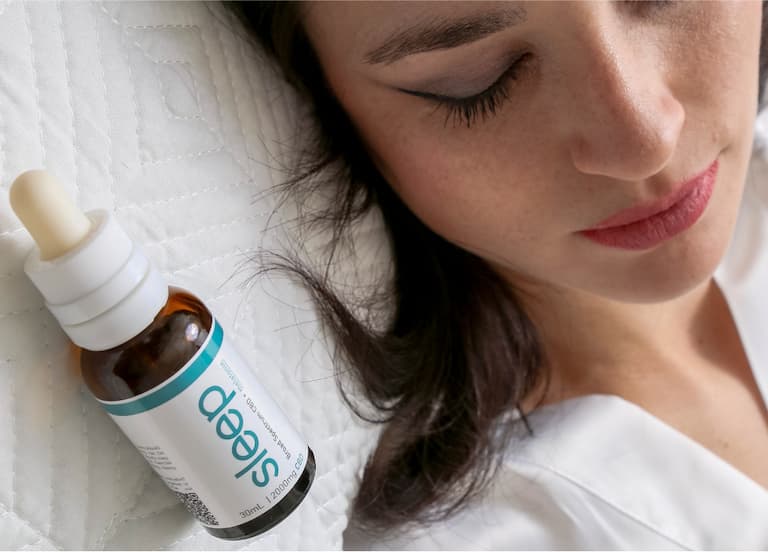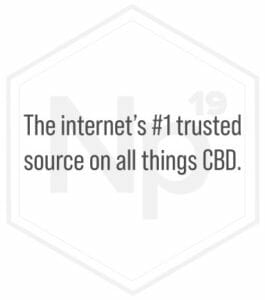The potential health benefits of CBD have been a hot topic in recent years, sparking curiosity, hope, and skepticism among those seeking relief from pain, anxiety, and sleep disorders. But as the buzz around CBD continues to grow, so does the debate about its safety, legal status, and the quality of available products. Are you ready to dive into the world of CBD and unveil the truth behind the hype? In this blog post, we’ll explore the basics of CBD, its potential benefits and risks, and address the question – is CBD bad for you? – as we navigate the complex market.
Key Takeaways
- This article provides an overview of Cannabidiol (CBD) and its potential health benefits, as well as a look at the complex legal landscape surrounding it.
- CBD has demonstrated promising effects for relieving pain, reducing stress and anxiety, and improving sleep quality. Users should be aware of potential risks such as dry mouth or low blood pressure.
- Consumers should consider FDA approval, product quality & labeling accuracy when navigating the CBD products market to make informed decisions.
Understanding CBD: The Basics
Cannabidiol (CBD) is a non-psychoactive compound found in the cannabis sativa plant, such as hemp and marijuana. Unlike THC (tetrahydrocannabinol), the compound responsible for the ‘high’ effect in marijuana, CBD does not produce intoxicating effects. As one of the many cannabis derived compounds, CBD offers numerous potential health benefits without the psychoactive properties of THC.
Over the past few years, CBD has gained popularity for its potential therapeutic benefits, including pain relief, anxiety and stress reduction, and improved sleep. However, the legal landscape surrounding CBD is complex, with varying regulations in different countries and states.
Medical Marijuana vs. CBD
Medical marijuana, derived from the cannabis plant, contains both THC and CBD and is used to treat various medical conditions, such as:
Anxiety
Arthritis
Epilepsy
Cancer-related nausea
On the other hand, CBD is typically extracted from hemp plants and has potential therapeutic advantages without the intoxicating effects of THC. CBD can be obtained from both hemp and cannabis plants through processes like CO2 extraction or solvent extraction.
The legal status of cannabis-derived CBD varies in certain states due to differing laws and regulations. While hemp-derived CBD is federally legal under the Agriculture Improvement Act, CBD derived from marijuana is not.
CBD Legal Landscape
CBD products derived from hemp are federally legal, but state regulations may differ for hemp-derived CBD products. In contrast, cannabis-derived CBD, a component of medical cannabis, remains illegal under federal law.
The legality of CBD products, such as dietary supplements, is determined by individual states. Before using CBD, particularly for pain management or other medical conditions, familiarizing yourself with the laws and regulations in your region is advised.
Potential Health Benefits of CBD
CBD has shown promise in providing pain relief, reducing anxiety and stress, and improving sleep quality.
However, it’s worth noting that further research is required to corroborate these potential benefits fully. Currently, the only scientific evidence for the potential benefits of CBD is for pediatric epilepsy.
As the research on CBD continues to evolve, we will gain a better understanding of its full range of potential health benefits and its suitability for various conditions.
Pain Relief
Some studies suggest that CBD may help manage chronic pain, offering a potential alternative to opioids and other pain medications for chronic pain patients. Research has indicated that CBD may be beneficial in managing various types of chronic pain, such as:
Arthritis pain
Neuropathic pain
Chronic back pain
Fibromyalgia
Migraine headaches
CBD’s analgesic and anti-inflammatory properties, as well as its ability to reduce inflammation in the joints, make it a viable option for pain relief.
CBD interacts with the body’s endocannabinoid system, binding to cannabinoid receptors and modulating pain thresholds, providing pain relief.

Further investigation is needed to substantiate CBD’s effectiveness as a pain reliever, even though the results are promising.
Anxiety and Stress Reduction
CBD has potential as an alternative treatment for anxiety disorders, showing promise in reducing anxiety symptoms and relieving stress. CBD may work by decreasing subjective anxiety, improving blood flow in certain brain regions, and altering brain activity and connectivity patterns, as well as autonomic and emotional responses to stress.
Additionally, CBD has been shown to interfere with fear memory consolidation and extinction, activate CB1 receptors in the amygdala, and modulate the endocannabinoid system.
Despite research still being in the early stages, further exploration into CBD’s potential as a natural remedy for anxiety disorders is warranted.
Sleep Improvement

Preliminary research indicates that CBD may improve sleep quality by helping individuals fall asleep faster and maintain a consistent sleep pattern.
Clinical trials have shown that cannabinoids, including CBD, can improve sleep quality, reduce sleep disturbances, and reduce sleep onset latency.
Further studies are required to determine CBD’s efficacy and its long-term effects on sleep enhancement.
Risks and Adverse Effects of CBD
While CBD is generally considered safe, users should be aware of potential side effects, medication interactions, and precautions for specific populations.
Common side effects of CBD include:
Dry mouth
Low blood pressure
Drowsiness
Gastrointestinal issues
Reduced appetite
Nausea
Fatigue
Irritability
Diarrhea
There seem to be some potential negative side effects that come along with CBD use, but they are very rare. Consulting a healthcare provider before initiating, discontinuing, or altering your CBD treatment plan is highly recommended.
Side Effects
CBD can cause various side effects such as:
Dry mouth: This may be caused by CBD’s interaction with the cannabinoid receptors in the salivary glands, leading to a temporary decrease in saliva flow.
Low blood pressure: CBD has been shown to reduce resting blood pressure and the blood pressure response to stress, leading to hypotension.
Drowsiness: Some people report feeling drowsy after taking large amounts of CBD. Stick to normal dosages to prevent this.
It is important to keep these side effects in mind when taking CBD.
Taking caution with higher doses of CBD is advised, as they may lead to liver injury. Further research is needed to understand the mechanisms behind CBD-induced liver injury.
Interactions with Medications
CBD may interact with certain medications, affecting their efficacy and side effects. CBD’s interaction with other drugs is primarily mediated through its effects on the liver’s cytochrome P450 (CYP450) enzyme system, which is responsible for metabolizing various medications. CBD can either inhibit or induce these enzymes, leading to alterations in the levels and effects of other drugs in the body.
Some known medications that interact with CBD include:
Naproxen
Tramadol
Celecoxib
Etoricoxib
Fluoxetine
Tofacitinib
Before combining CBD with other medications, consultation with a healthcare provider is advised.
Precautions for Specific Populations
Pregnant women, individuals with certain medical conditions, and children should exercise caution when using CBD products. Pregnant women should be especially cautious, as CBD may present potential risks to the fetus, and the FDA is currently conducting research to assess these potential risks.
Individuals with liver disease may require lower dosages of CBD, while preliminary research indicates that high doses of CBD may exacerbate muscle movement and tremors in some individuals with Parkinson’s disease.
As for children, Epidiolex is the only FDA-approved CBD product suitable for use in children with certain conditions who are at least 1 year old.
Navigating the CBD Products Market

The CBD market is loosely regulated, with concerns surrounding FDA approval, product quality, and labeling accuracy. Consumers should be cautious when purchasing CBD products, as labeling and quality may be inconsistent or unreliable.
The FDA has only approved one CBD product, Epidiolex, for pediatric epilepsy, while other CBD products are not regulated or approved for specific medical conditions.
FDA Approval and Regulation
The Food and Drug Administration (FDA) has approved Epidiolex, a prescription drug containing CBD, for the treatment of pediatric epilepsy, specifically Lennox-Gastaut syndrome (LGS), Dravet syndrome (DS), and tuberous sclerosis complex (TSC). The FDA approved Epidiolex after reviewing four double-blind placebo-controlled trials. These trials showed that the drug could drastically decrease the amount of seizures experienced by those involved.
However, the FDA has not yet established definitive regulations for the production and sale of other CBD products, as the Controlled Substances Act still plays a role in the industry.
Quality and Labeling Concerns
Potential quality and labeling concerns should be considered when purchasing CBD products. Indications of low-quality CBD products may include:
Lack of third-party testing
Incorrect labeling
Contaminants or impurities
Unsubstantiated health claims
A low price
To evaluate the quality of CBD products, consumers can:
Verify the CBD and THC concentrations indicated on the label
Evaluate the consistency of the oil
Assess the purity
Determine the potency of cannabinoids
Consult with hemp and CBD product testing experts
Considering these factors will help you make well-informed decisions when choosing CBD products.
Clinical Trials and Ongoing Research
Ongoing clinical trials and research are necessary to fully understand the potential benefits and risks of CBD use. Clinical trials have provided valuable data on the medicinal benefits and potential side effects of CBD, supporting its potential as a therapeutic option. Some key findings from these trials include:
CBD has shown promise in reducing seizures in patients with epilepsy.
CBD may have anti-inflammatory properties, which could be beneficial for conditions such as arthritis.
CBD has been studied as a potential treatment for anxiety and has shown positive results in some trials.
These findings contribute to a more comprehensive understanding of CBD’s potential and its role in treatment strategies.
As research advances, we anticipate gaining more insights into the potential benefits and risks of CBD use.
Summary
In conclusion, CBD has shown promise in providing pain relief, reducing anxiety and stress, and improving sleep quality.
However, more research is needed to fully understand and validate these potential benefits. The legal landscape surrounding CBD is complex, and the quality and labeling of CBD products on the market may be inconsistent or unreliable.
It is crucial to consult with a healthcare provider before starting, stopping, or modifying your CBD treatment plan, especially when combining CBD with other medications or using it during pregnancy. As clinical trials and research continue to evolve, staying informed about the latest findings will help you make informed decisions when considering CBD use.
Frequently Asked Questions
Are there any dangers of CBD?
There are potential risks and harms associated with CBD use, such as adverse drug interactions, liver toxicity, and reproductive and developmental effects. It can also interact with other medications, cause dry mouth, diarrhea, reduced appetite, drowsiness and fatigue. People taking high doses of CBD may show abnormalities in liver related blood tests.
What does CBD actually do to your body?
CBD has been shown to have potential benefits for a variety of health conditions, including anxiety, neurological disorders, heart health issues, pain, sleep disorders, and depression. Studies suggest that oral CBD may be an effective tool in relieving symptoms such as anxiety, pain, and improved sleep.
Is it OK to consume CBD everyday?
It is recommended to take CBD daily for at least 21-28 days in order to experience the long-term results. Thus, it is OK to consume CBD everyday.
What is the difference between medical marijuana and CBD?
Medical marijuana contains THC and CBD, and is used to treat medical conditions, while CBD is derived from hemp and provides potential therapeutic benefits without causing a high.
What are the potential health benefits of CBD?
CBD has shown promise in providing relief from physical and mental discomforts, making it a potentially useful tool for overall health. Further research is needed to understand its full potential.













